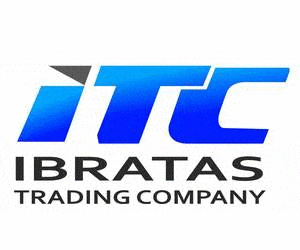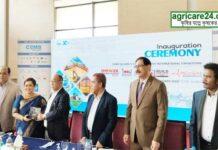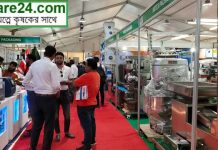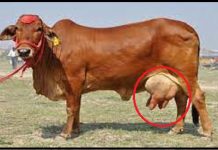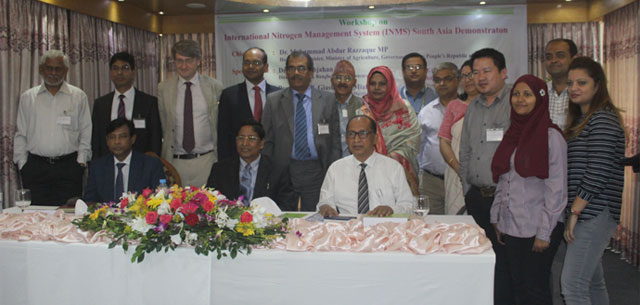
Desk Report, agricare24.com: INMS South Asia Regional Demonstration Workshop begins in Dhaka on 15 Sept 2019.
Nitrogen is the most important nutrient affecting growth of all the living organisms in this planet. Although more than two-thirds of the atmosphere is nitrogen, it cannot be directly used for biological growth. This nitrogen is needed to be converted to its active forms for their uptake and incorporation into plants and animals.
This is achieved by application of fertilizer nitrogen that has now become a mainstay of increased global productivity for feeding the global population.
It has been calculated that on an average, four out of ten persons on this planet is fed by fertilizer-N, meaning growing crop using N-fertilizer and thereby support the food needs of growing billions.
South Asia being one of the most populous regions on this planet and with an agrarian economy to feed its growing population is hugely dependent on the use of N-fertilizer.
South Asia, on a regional basis, use around ~ 17 percent of global fertilizer production. This has resulted in food self-sufficiency in the countries of this region.
However, in the race for achieving more production, farmers tend to use more and more fertilizer-N, resulting into misuse and disuse of fertilizer-N and its release in the environment.
This has caused severe environmental disturbances like release in the water bodies and unwanted growth of aquatic organisms, release in the atmosphere causing atmospheric pollution and enhancing climate change related events and likewise.
In order to extract maximum efficiency of the fertilizer-N in agricultural and environmentally sustainable way, it is essential that the farmers are advised on the rational use of fertilizer-N in different sectors of agricultural productivity like horticulture, aquaculture, animal husbandry etc.
Apart from agriculture, other sectors of economy like energy production, transport, industry, waste management, also contribute to N-pollution.
This requires a proper stock taking of N-use and its release from the major sectors of the economy to advise a scientific and rational use of chemically reactive-N so that people of South Asia can live in an environmentally sustainable manner.
The two-day workshop (15-16 September, 2019), organized as an activity under the global project “Towards Integrated Nitrogen Management System (INMS)” funded by Global Environmental Facility (GEF) of World Bank, is being held for the first time in Bangladesh under the aegis of Bangabandhu Sheikh Mujibur Rahman Agricultural University, Gazipur.
With representatives from partner South Asian countries attending the meeting, it aims at further sensitization of the South Asian community on this issue and also collating related information on the contribution of different sectors of economy towards release of reactive-N towards a more accurate stock taking.
More Read: 7th Annual South Asia Biosafety Conference begins in Dhaka





